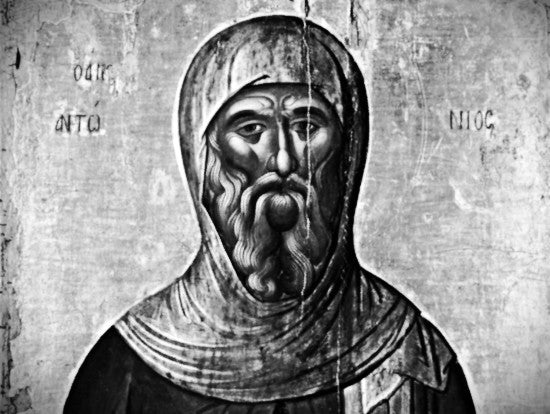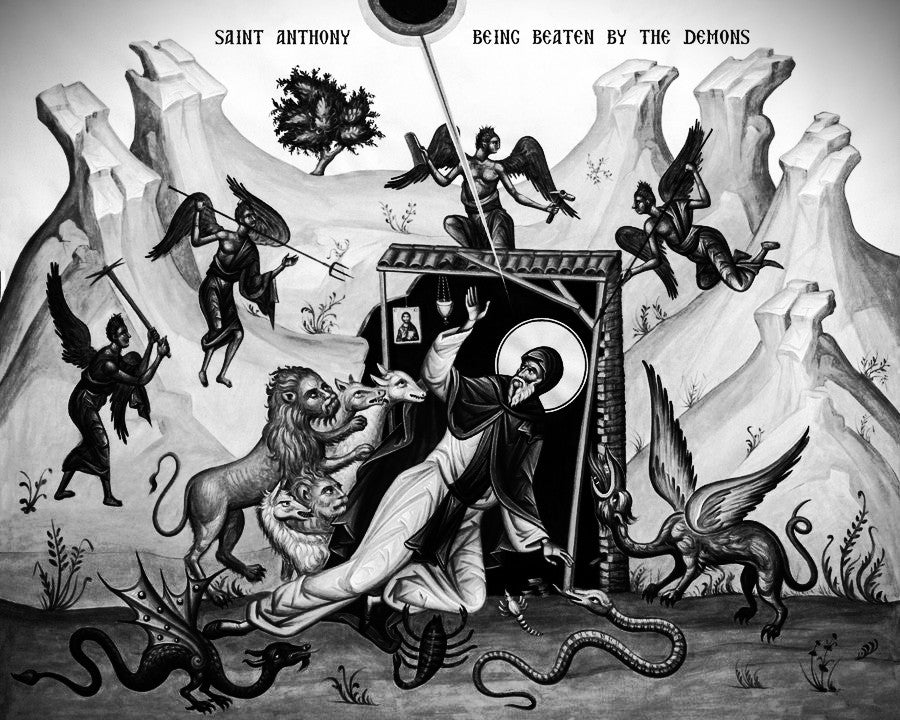SAINT ANTHONY THE GREAT
A model of inner struggle and radical renunciation

January 17, according to the Orthodox liturgical calendar, marks the commemoration of Saint Anthony the Great, also known as Anthony of Egypt, regarded as the father of Christian monasticism. His life, rooted in the 3rd century, tells the story of a man who chose to leave everything for God, making the desert his only master and silence his path to truth. Through his radical choices, Saint Anthony embodies the power of living for God alone, without compromise.
From the World to the Desert
Born around 251 in Egypt into a wealthy Christian family, Anthony lost his parents at a young age. Shortly after, at the age of about 20, he heard these words of Christ at church:
“If you want to be perfect, go, sell what you have, give it to the poor, then come, follow Me.” (Matthew 19:21)
He obeyed immediately. Selling all his possessions, he entrusted his sister to a community of virgins and retreated into solitude, first near the village, then farther and farther into the wilderness. He didn’t seek to create a movement — he simply fled the world to find God.

The Invisible Fight
In the absolute silence of the desert, Anthony faced an unseen reality: the spiritual struggle. There, he encountered demons — not merely symbolic, but experienced as real and terrifying. They tempted him, attacked him, tried to break his resolve.
Yet he stood firm, understanding that this inner battle was a necessary passage toward liberation. Through fasting, prayer, and invoking the name of Christ, he found strength.
He would later say that the true enemy is not outside us, but within: the corrupted will and passions. Amid these torments, Christ appeared to him and strengthened him.
A Radiant Solitude
Though he sought isolation, Anthony’s example drew many to him. Men came from across Egypt to seek his wisdom. Without intending to, he became the spiritual father of a whole generation of monks.
He never built a formal monastery, but his way of life inspired the birth of Christian monasticism throughout the East and later in the West.
Even as crowds sought him out, he remained rooted in prayer and humility. When Emperor Constantine wrote to him, Anthony replied simply, reminding him that only God can save a soul.
A Peaceful and Hidden Death
Anthony lived to be over 100 years old. Sensing his death was near, he asked to be buried in a secret place, so that his body would not be venerated — in keeping with his deep humility. He left behind only his simple tunic, offered to a disciple.
He died as he had lived: at peace with God, detached from all things, rich only in the Spirit.
Saint Anthony and Holy Shadows
At Holy Shadows, we draw inspiration from figures like Saint Anthony the Great, whose life reflects the very heart of our vision: leaving behind illusions to seek truth in silence, in struggle, and in hiddenness.
Anthony wore no mask. He did not seek fame. He sought only purity of heart and union with Christ. His example speaks powerfully to us today — in an age overwhelmed by noise, distraction, and false identities.
He reminds us that withdrawal, spiritual warfare, and radical simplicity can become paths to light.
Go deeper
For those who wish to learn more about Saint Anthony’s life and spiritual legacy, we recommend this documentary: